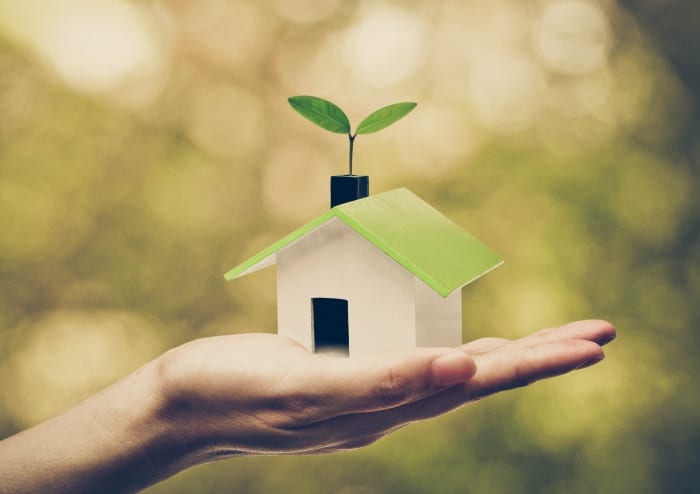
Government has set the ambitious goal of transitioning Barbados into the first 100 per cent carbon neutral island state by 2030.
Minister of Industry, Innovation, Science and Technology (MIST), Davidson Ishmael, said the country was on the cusp of an energy revolution as it looked to phase out fossil fuels for renewable alternatives.
He was speaking at the virtual launch of Climate Launchpad Caribbean’s Green Business Ideas Competition 2022, on Wednesday.
“Barbados’ transition to a carbon neutral state is critical, not only to ensure that we are aligned with global efforts on sustainable development, but also to leverage new opportunities in the emerging green economy, thus sharpening Barbados’ competitive advantage in this area,” he pointed out.
He further stated that MIST was collaborating with the United Nations Industrial Development Organization, Export Barbados (Barbados Investment & Development Corporation – BIDC) and the Caribbean Centre for Renewable Energy and Energy Efficiency to implement the Global Environment Facility (GEF) funded project entitled: A strategic platform to promote sustainable energy technology innovation, industrial development and entrepreneurship in Barbados.
Mr. Ishmael said the project would also contribute to the implementation of the National Strategic Plan 2005-2025, which aims at making Barbados a “green circular economy” and the “most environmentally advanced green country in Latin America and the Caribbean”.
However, he noted that the realisation of such a vision relied on the speedy transformation of the energy system from fossil fuels to renewable energy and energy efficiency.
“The development of a “clean tech market” requires an equilibrium between the demand for and quality supply of renewable energy and energy efficiency products and services. Most of the current public and international support is focused on creating demand through enabling policies, incentives and concessional finance. However, there is only limited support for the creation of an enabling environment for green businesses and entrepreneurs,” the Industry Minister explained.
He said the GEF project would focus on strengthening the supplier-side and development of associated value chains and business models.
As it stands, Mr. Ishmael noted that Barbadian clean-tech businesses and start-ups would continue to face barriers related to policy and regulatory frameworks, knowledge, capacity, access to research and development and quality infrastructure and finance.
“There exists only very limited coordination and cooperation within the sector. Therefore, the GEF project will strengthen private sector capacities in areas relating to sustainable energy technology, especially in those areas where there is market and value creation potential.
“More precisely, this project will make a significant contribution to the clean-tech industry, which is an important value-creating pillar for the industrialisation and modernisation aspirations of the Government,” he stated.
The GEF project has a number of objectives, which include:
- establishing a public-private platform for regular policy dialogue in an effort to promote coherent demand and supply-oriented, cross-sectoral policies, regulations and incentives;
- establishing a physical sustainable energy and climate cluster hub which provides businesses with communication and networking space, start-up support (e.g. co-working and maker space, incubation services, common marketing/branding), as well as capacity building;
- strengthening the cluster members by establishing a funding window which provides grants and concessional loans for the commercialisation of innovative business ideas and industrial upgrading;
Additionally, the Minister disclosed that Export Barbados (BIDC), which falls under MIST, had developed a renewable energy strategy that is designed to “empower Barbadians”.
He said Barbados’ clean technology capacity was well over three Gigawatts while a feasibility study and technical analysis revealed that the island needs 780 Megawatts – 1.6 Gigawatts for 100 per cent renewable energy electrification.
Mr. Ishmael said this meant the island’s renewable energy generation capacity will significantly outpace existing energy demand. This created the opportunity for Barbados to export excess energy capacity.
“It is estimated that the hydrogen economy will be worth USD $2.5 trillion by 2050. Countries such as Japan and South Korea have already signalled their intention to import significant quantities of green hydrogen in the future as they decarbonize their economies.
“This emerging demand offers a significant export opportunity for Barbados and indeed for the region. At present, there are not any large-scale hydrogen exporters. This, therefore, presents an unprecedented source of commercial opportunity for technological innovation, buttressed by improved eco-efficiency,” he underscored.
Mr. Ishmael added that Export Barbados (BIDC) was also planning to construct a sustainable Mechanics and Automotive Hub, where owners and operators of micro and small automotive and auto-body businesses would have dedicated self-contained, mechanics bays and office spaces to conduct their work.
The Hub is expected to encourage sustainable development and operations through the incorporation of solar technology into the building designs.
